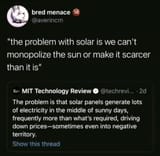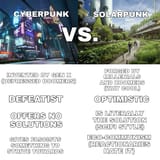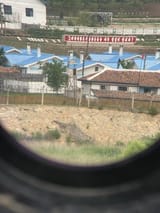>>40965780 (OP)
No. There are just functional and technical limitations.
I will list a few
1) Power generation is based on incident sunlight which we cant control. This either over provides or under provides (day-night cycle, seasonality, weather)
2) Over provided energy needs to be stored to deal with times when it under provides - battery storage issues are limiting
3) The batteries are an environmental nightmare themselves and energy intensive to make
4) Photovoltaic cells take advantage of properties of semiconductor materials, incurring the same climatological impacts and e-waste of any other semiconductor manufacturing
5) Scaling requires additional surface area to capture more incident light which is not sustainable with our growing energy demands
6) DC-AC conversion losses coupled with line losses make it ill suited for long distance power transmission
7) Maintenance burdens are non-trivial and have a direct and immediate impact on power output
8) Photovoltaic cells and the batteries have a poor end of life cycle. They are not really recycleable.
The sort of sad reality is that fossil fuels have a massive advantage in energy storage and power output (electric motors have instant torque but much lower torque generally when compared to diesel).
Solar is a useful technology that should be tactically deployed where applicable, but its not a solution in and of itself. It becomes a little better once we get batteries figured out but we won’t really ever solve the inherent limitations.
The ideal end result is nuclear. Improved fission reactors (molten salt, triso particle) and eventually fusion (or near fusion such as with Helion’s pulser reactor).
I like the idea of agri-solar. Using solar panels for local energy and climate control for growing crops.

















